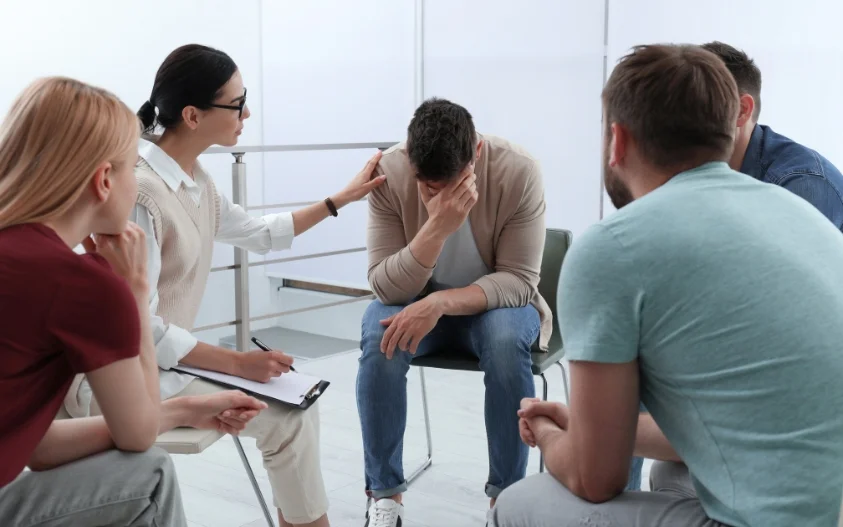24/7 Helpline:
(866) 899-221924/7 Helpline:
(866) 899-2219
Learn more about PTSD Treatment centers in Ireland

Other Insurance Options

Holman Group

WellCare Health Plans

Optima

UMR

Self-pay options

MHNNet Behavioral Health

Carleon

Health Net

Coventry Health Care

Sliding scale payment assistance

United Health Care

AllWell

Aetna

Anthem

BlueCross

American Behavioral

GEHA

Health Partners

Cigna

Regence













